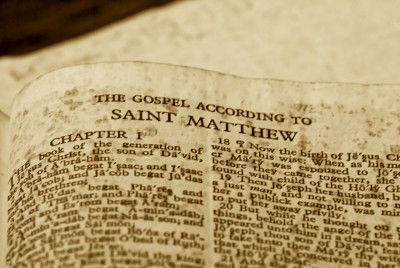“However, so that we do not
offend them … take the first fish that comes up…” Jesus to Peter in
Matthew 17:27
“Although my memory's fading, I remember two things very clearly: I am a great sinner and Christ is a great Savior.” (John Newton, 1725-1807, former slave trader who came to Christ and wrote the hymn, “Amazing Grace.”)
Jesus is leading his disciples to
Jerusalem (see 16:21). And when they came to Capernaum (v. 24), they likely stop at
Peter’s house (see Mark 1:21, 29). The collectors of the
half-shekel tax (v. 24)
confront Peter outside his home. (Is it mere coincidence that Matthew the
tax-collector is the only one of the four gospel writers to include this
story?)
These tax-collectors are not the dreaded
ones who work on behalf of the occupying Romans. Rather, these Jewish tax-collectors are gathering the annual
two-drachma tax, the equivalency of two days’ wages, as specified in Exodus
30:11-16. This is a “happy tax,” a
tax that the Jews are glad to pay since it helps to maintain the temple.
These tax-collectors were neither
friends of Rome nor friends of Jesus.
They try to trap Peter. They went up to Peter
and said, “Does your teacher not pay the tax?” (v. 24). If the answer is no, then the
unbelieving Jews can accuse Jesus of breaking the Law of Moses. If the answer is yes, then that would
discredit Jesus’ claim of divinity: Why would God pay a tax? Peter’s answer was succinct; he said, “Yes.” (v. 25). Then Jesus took over from that point.
And when he (Peter) came into the house, Jesus, omnisciently aware of what just happened, spoke to him first (v. 25). Perhaps Peter was shaken up by
the confrontation outside his home.
Jesus says, “What do you think, Simon? From whom do kings of the earth take
toll or tax? From their sons or
from others?” And
when he said, “From others,” Jesus said to him, “Then the sons are free.” (vv. 25-26). Jesus has affirmed Peter’s status as a son of the King. This status is true not just for Peter
but for all believers at all times.
Because of this truth we
can call God “Father.” (See Galatians 4:6-7, Romans 8:15-16). What a glorious blessing of the reconciliation our Lord
brings to us!
But Jesus is not finished. “However, not to give offense to them…” (v. 27) Our freedom is not a cloak by
which we cover ourselves from the responsibilities of the world around us. Jesus will pay the tax even though he was
free not to; in this situation not to give offense was
more important to Jesus than exerting his rights. At other times, Jesus did
offend the Jews (see 15:12, Luke 11:45-46). But he loved the temple (John 2:17)
and he did not come to abolish the Law (5:12). Therefore, not to give offense
was more important to Jesus than proving wrong these tax collectors.
And in providing for the tax, Jesus didn’t
just pull a shekel from His pocket and flip it to Peter. Rather, Jesus makes Peter go the long way and fish for the shekel! Why? Scripture does not give us direct
insight into Jesus’ reasoning at this moment but there is a principle of faith found
in the New Testament that is consistent with this story. Peter’s faith was likely weak at
this time after a series of rebukes (Matthew 16:23, 17:5, 17:17; 17:24).
Therefore, Jesus wanted to nurture Peter
and to strengthen his faith. So Jesus instructs Peter to “go to the sea and
cast a hook and take the first fish that comes up, and when you open its mouth
you will find a shekel. Take that
and give it to them for me and for yourself,” (v. 27). Weak faith
becomes stronger as it is exercised. Peter heard the loving, affirming and provisional words of
Jesus, particularly the phrase, “for me and for yourself.”
To obey Jesus, Peter had to
exercise his faith and take Jesus at his word; consequently, he will once again
find Jesus faithful.
In this passage we see the tough yet
tender love of Jesus for Peter. John
Piper in his biography on John Newton refers to the “tough roots of his
habitual tenderness.” This
attribute in Newton was carved into his life the same way it was carved into Peter: In spite of the rebukes, Jesus continually
nurtured and loved Peter.
Our Lord will not hesitate to discipline us as a loving father
disciplines his son (see Hebrews 12:7).
Yet he will always affirm and love us.
We are all lumpy cracked chunks of
rock upon which the Master Carver is at work. May we not groan and complain at the hammering and
digging of the mallet and chisel.
Instead may we rejoice that the Master is shaping us into his
image. And he will not stop till
he has lovingly brought “it to completion at the day of Jesus Christ”
(Philippians 1:6).


